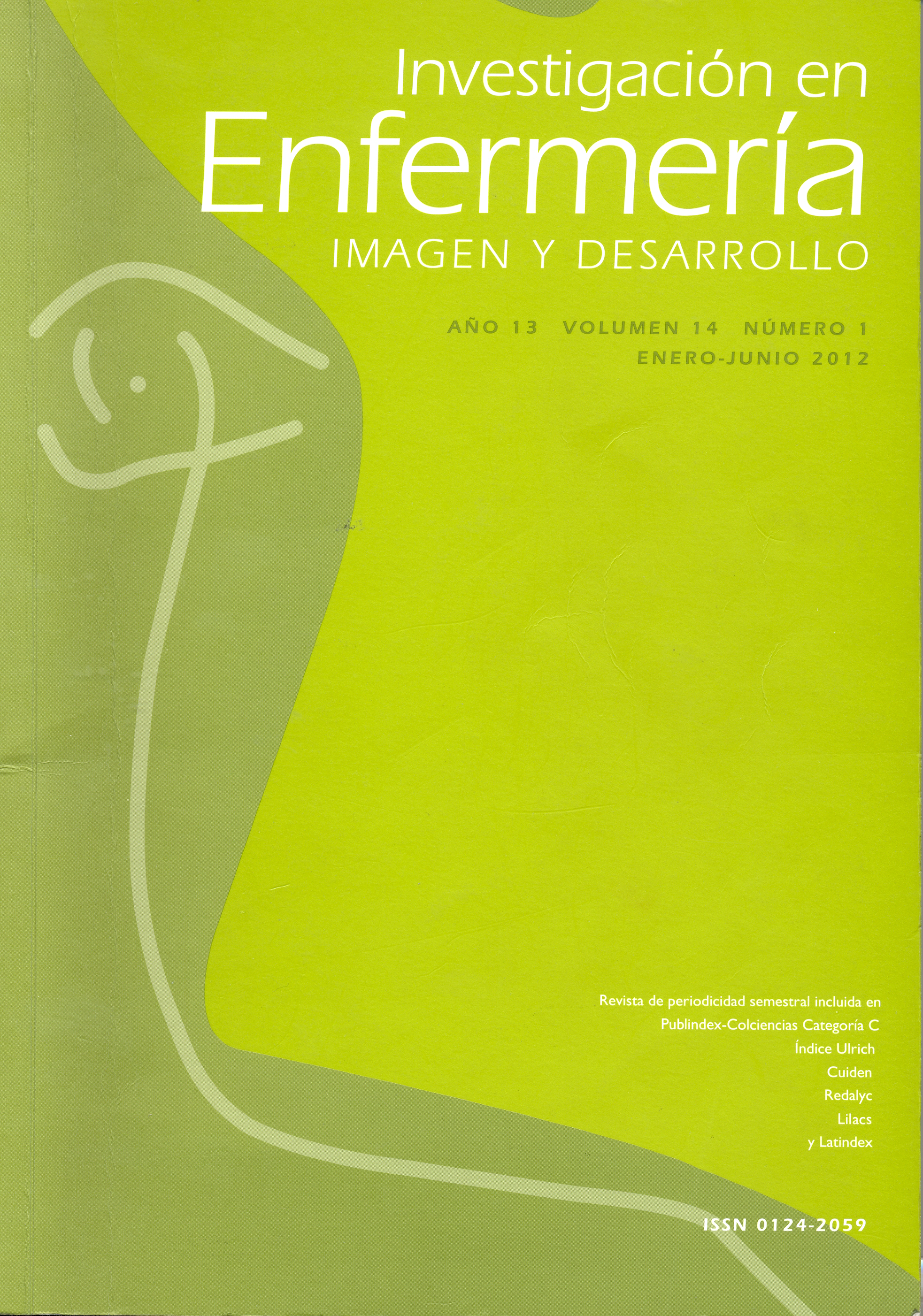Resumen
Objetivo: describir los conocimientos, actitudes y prácticas de las gestantes y madres con VIH de niños menores de un año, en torno a su cuidado y el de su hijo en el Hospital Universitario San José y Servicios Integrales Especializados en Salud de la ciudad de Popayán, en el 2009. Materiales y métodos: estudio cualitativo etnográfico focalizado. Participaron seis mujeres con VIH, seropositivas (mediante el Western Blot) con un hijo menor de un año. previo consentimiento informado, se procedió a recoger la información, a través de una entrevista a profundidad y el diario de campo. Resultados: desde la perspectiva Etic de tres categorías: (conocimientos, actitudes y prácticas) y desde la Emic emergen las subcategorías: conceto de VIH, formas de trasmisión, sentimientos, socialización, cuidados y vínculo. Relaciones estables, confianza y fidelidad dan la percepción de inmunidad ante la infección, lo que facilita la negación al riesgo, y las mujeres contrajeron el virus por su único compañero. La maternidad genera respuestas físicas y psicológicas, encaminadas a suplir necesidades del nuevo ser. Los estímulos del entrono pueden llegar a romper el equilibrio y su estilo de vida. El temor a reanudar nuevos afectos y el aislamietno social deterioran la capacidad de relacionarse con personas significativas que faciliten sus procesos de adaptación y cuidado. Conclusiones: la falta de conocimiento sobre VIH fue el mayor estímulo negativo para las participantes, que dificultó el proceso de afrontamiento y adaptación al proceso de infección. El diagnóstico de seropistividad las deja enfrentadas a cambios que involucarn sus redes de apoyo personal, familiar y social, lo que influye en sus expectativas de vida, eclipsadas por alteraciones en su estado de salud y estrés generado por la estigmatización de su seropositividad.
ABSTRACT
Objetive: to describe the knowledge, attitudes and practices that HIV poitive pregnant women and mothers of children under one year of age regarding their self-care and the care of their children at the San José Teaching Hospital and the integrated Specialized Health Services of the City of Popayán, in teh year 2009. Materials and Methods: qualitative ethnographic focused study. The participants were six HIV seropositive women (confirmed by Western Blot) with one child under one year of age. After obtaining informed consent, the information was collected through a personal in-depth interview and field diaries. Results: three categories (knowledge, attitudes and practices) were established from the Etic perspective; and from the Emic, we defined the following subcategories: the concept of HIV, modes of transmission, feelings, socialization, care and bonding. Stable relationships, trust and faithfulness give the impression of immunity to infection, which facilitates the denial of risk, and these women contracted the virus from their only partner. Motherhood generates physical and psychological responses aimed at meeting the needs of the new being, while environmental stimuli might break the balance and change the previous lifestyle. The fear to establish or renew relationships and the social isolation impair the ability to relate to meaningful others who can facilitate the processes of adaptation and care. Conclusions: the lack of knowledge about HIV was the most negative stimulus for participants, and hampered the process of coping and adaptation to the infection. The HIV seropisitivity diagnosis left them facing changes involving their personal support networks, family and social milieu, which affected their life expectations, overshadowed by changes in their health and by the stress associated with the stigma of the HIV status.
La revista Investigación en Enfermería. Imagen y Desarrollo se encuentra registrada bajo la licencia Creative Commons Reconocimiento 4.0 Internacional. Por lo tanto, esta obra se puede reproducir, distribuir y comunicar públicamente en formato digital, siempre que se reconozca el nombre de los autores y a la Pontificia Universidad Javeriana. Se permite citar, adaptar, transformar, autoarchivar, republicar y crear a partir del material, para cualquier finalidad (incluso comercial), siempre que se reconozca adecuadamente la autoría, se proporcione un enlace a la obra original y se indique si se han realizado cambios. La Pontificia Universidad Javeriana no retiene los derechos sobre las obras publicadas y los contenidos son responsabilidad exclusiva de los autores, quienes conservan sus derechos morales, intelectuales, de privacidad y publicidad.
El aval sobre la intervención de la obra (revisión, corrección de estilo, traducción, diagramación) y su posterior divulgación se otorga mediante una licencia de uso y no a través de una cesión de derechos, lo que representa que la revista y la Pontificia Universidad Javeriana se eximen de cualquier responsabilidad que se pueda derivar de una mala práctica ética por parte de los autores. En consecuencia de la protección brindada por la licencia de uso, la revista no se encuentra en la obligación de publicar retractaciones o modificar la información ya publicada, a no ser que la errata surja del proceso de gestión editorial. La publicación de contenidos en esta revista no representa regalías para los contribuyentes.


